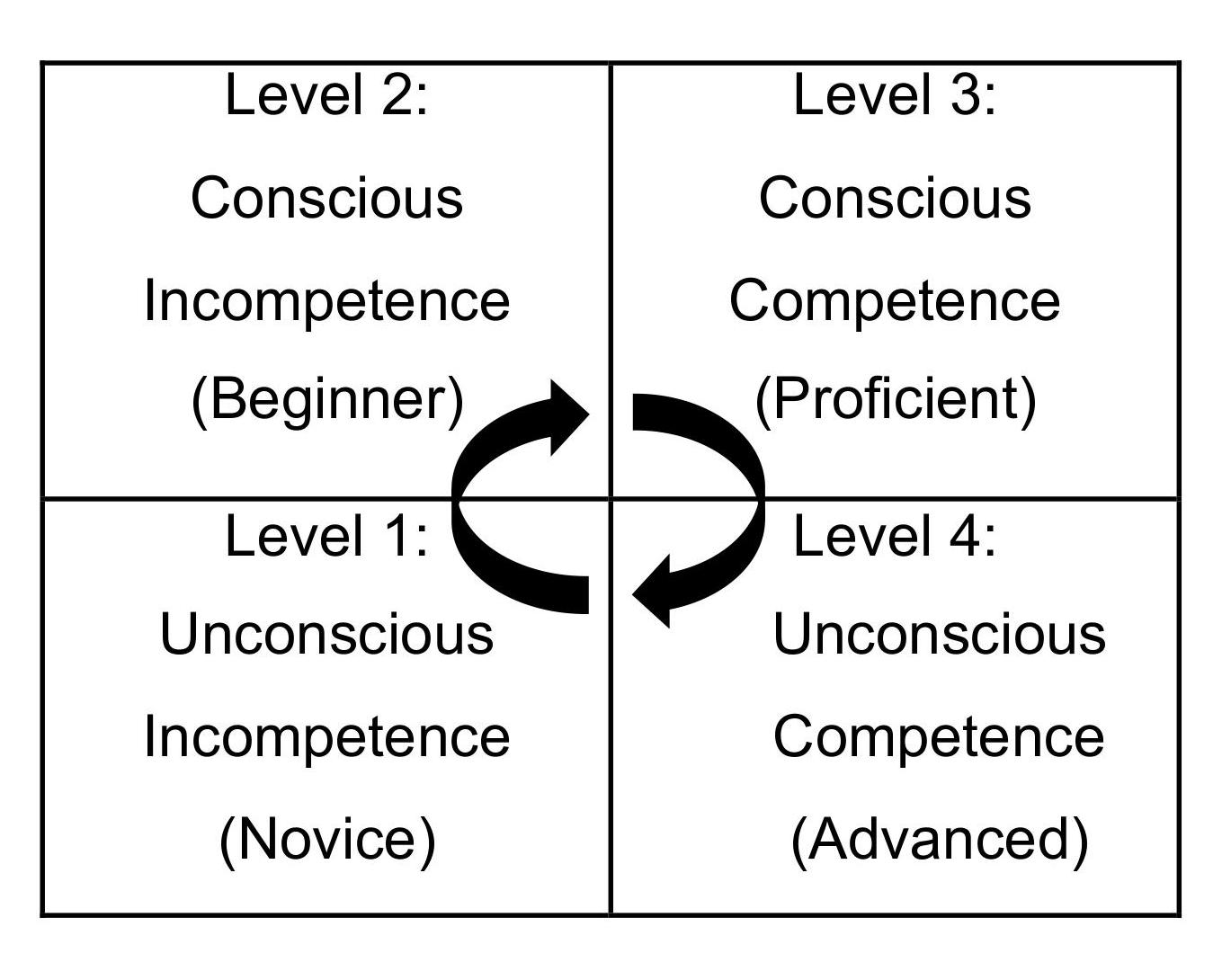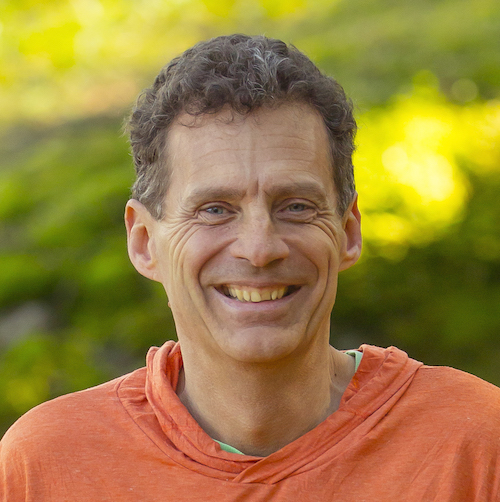
Image courtesy of Christine Engelhardt from Pixabay.com
Approx. 10 minute read
Welcome to Part Two in the series of Practical Tools for Improving Your Mental and Emotional Well-Being.
In this article, we’ll continue with another foundational principle that builds upon Part One (The Power of Thought) – How You Learn.
It’s important to understand the process of learning as you move through these tools for improving your well-being. Knowing the steps and strategies of learning will help:
- Build acceptance for where you are in the process.
- Understand the potential pitfalls and challenges.
- Increase your motivation and chances of success.
Let’s get started.
How You Learn
Change involves learning. Learning broadens your perspective (you don’t know what you don’t know). And the quality of your learning is a choice.
Example: My mom is in her eighties. Over the past fifteen years, she chose to be actively involved in the age of computer technology. She made learning to use a computer a priority. Today, she has a computer, an iPad, and an iPhone. She texts, sends emails, uploads her photos, and is active on social media.
She didn’t have to do this, and it wasn’t easy for her, but it was important to her to be able to communicate and stay in touch with family and friends.
My mom learned to be gentle with herself as there was a steep learning curve for her, and as technology continues to evolve, her learning doesn’t stop.
Understanding the process of learning leads to acceptance of the “3 P’s” for yourself (and for my mom): Practice, Patience, and Persistence.
It will also help you know where you are in the process, where you might be stuck, and what you can do to keep going.
Let’s take a look at two processes, slightly different, but with the same underlying principles. (I chose to present you with two options – you can focus on the one that resonates with you).
Conscious Competence – Model #1
This particular model was taught by Noel Burch[1] in the 1970s at Gordon Training International. The premise goes like this.
You don’t know how to do something, and “you don’t know that you don’t know” how to do it (unconscious incompetence).
Next, you want to learn about “that” something, you begin to do it, and realize you suck at it (conscious incompetence).
You decide you really want to learn “that” something and pour your heart and soul into it and become somewhat accomplished (conscious competence).
Finally, you do “that” something so often that you can do with your eyes closed (unless it’s driving a vehicle!). Congratulations, you are in a state of unconscious competence!
Think of some examples in your own life: learning to ride a bike, play an instrument, reading, writing, cooking, etc. . . . the list is endless. You are a “learning machine” and have been going through each of these steps – probably without realizing it.
- Unconscious Incompetence – don’t know what you don’t know.
- Conscious Incompetence – know that you don’t know.
- Conscious Competence – know what you know.
- Unconscious Competence – don’t have to think about what you know.
Conscious Competence Learning – a visual.

This is the competence loop you move through when learning something new. You progress from Unconscious Incompetence (Level1: Novice) to Unconscious Competence (Level 4: Advanced). Then, you start over as you take whatever you learned to the next level or begin to learn something new.
Example: I can drive a car without much conscious thought (Unconscious Competence). Yet, if I wanted to learn to drive a motorcycle or eighteen-wheel transport truck, I would be a novice or a beginner.
Time for some reflection on your part.
Remember a time when you achieved a state of Unconscious Competence (Level 4: Advanced). Now, think about a time when you stopped before achieving that advanced state. Where did you stop in the process, and what stopped you?
Stages of Change – Model #2
The Stages of Change Model has been used primarily in the area of addiction recovery. The model was created by James O. Prochaska and Carlo Di Clemente (and colleagues) in the late 1970s[2].
The model can be applied to any change process. Here are the steps:
- Precontemplation: no interest in changing.
- Contemplation: thinking about changing.
- Preparation: planning for change.
- Action: implementing the plan to change.
- Maintenance: practicing (living “the change”).
- Termination: expert/mastery – move on to something new.
An example: John learns to play guitar.
Precontemplation: No interest in or doesn’t believe he has the capability to play an instrument in his fifties.
Contemplation: John begins to consider the possibility as one of his friends is learning a new language and another is taking piano lessons.
Preparation: He begins to research online tutorials, in-person classes, and instruments. John makes what he believes is a reasonable goal to learn to play a few of his favorite folk songs (ones that are at a beginner level) within a year.
Action: He follows his plan, buys a second-hand acoustic guitar, and takes lessons (in-person and online).
Maintenance: John commits to playing for a minimum of thirty minutes a day for five days a week.
Termination: After one year, John can play five songs comfortably, his fingers are now well-calloused. His initial goal is complete. He begins to contemplate his next goal for the guitar.
Take a few minutes to think about a few of your own learning experiences with the particulars for each step along the path of the Stages of Change model.
Now you have two learning models to reference for the remainder of these articles and for whenever you’re learning something new. The models complement each other and do overlap.
Here is an excerpt from my novel, The Shift Squad, where ‘Teach’ Neil and the students discuss the models.
Conner sat upright, pushing the brim of his cap upward. “Something doesn’t jibe, Teach.”
“What’s that?” asked Neil.
Conner rubbed his chin with one hand. “A hockey player doesn’t stop improving. I have a new power skating coach this year. He’s working with me to increase my speed. I’m also working on new stick handling and shooting moves,” he added with a shrug. “It seems to me there is no termination until I decide to quit. Otherwise, I keep learning all the time.”
Neil’s face broke into an ear-to-ear grin. “Thank you for that, Conner.” He put the marker down and clapped his hands once, then rubbed them together. “Termination, exit, or completion is as I like to say, the desired outcome of a specific goal. It can be a big, longer-term goal, or a smaller, shorter-term goal. A big goal—like recovery or becoming a pro hockey player—will be years in the doing. Along the way, there are smaller goals that follow the stages of change and competency ladder. The smaller goals lead to the end-goal.”
Eddie set his hands on his head, his fingers disappearing into the mound of his wavy hair. “So, in Conner’s example, the end-goal is to be a pro hockey player. But he would have smaller goals like learning to skate, stick handle, body check, and shoot.”
“You got it, Eddie,” Neil said with a resounding endorsement. “Each time you make a change and learn something new, you follow both models. It’s epic. Am I right?”
Makes sense, since the process of learning “is what it is”. There are alternate ways of presenting it along with different terminology.
Recognize where you are in the learning model or your choice and give yourself a pat on the back as you progress.
Along your journey, please implement the 3 P’s of learning and be gentle with yourself (just like my mom has been with learning about computers).
- Practice
- Patience
- Persistence
Thanks for taking the time to be here. I encourage you to continue to follow along. And hey, please send me an email or comment on this post with your thoughts and how the concepts have resonated with you.
For a free copy of a comprehensive PDF workbook on these tools and concepts, send me an email at [email protected].
Here is Part Three in the series (the final two foundational concepts): The Meaning of Life and Out of Control.
~~~~~
[1] Noel Burch: Conscious Competence Ladder: https://www.mindtools.com/pages/article/newISS_96.htm
[2] Stages of Change: https://en.wikipedia.org/wiki/Transtheoretical_model
~~~~~~
For more techniques and tools to modify behavior, check out my unique and engaging self-improvement novel, The Shift Squad.
 I write to inspire others to greater self-empowerment, authenticity, and improved emotional and mental well-being.
I write to inspire others to greater self-empowerment, authenticity, and improved emotional and mental well-being.
I am the author of the unique personal development novel The Shift Squad.
If you like what you read please subscribe for updates, share my articles with others, and add your comments below.
You can connect with me via email at [email protected] , on Facebook, Twitter, and LinkedIn.
Be Empowered. Make Authentic Choices And Enhance Your Quality Of Life.
